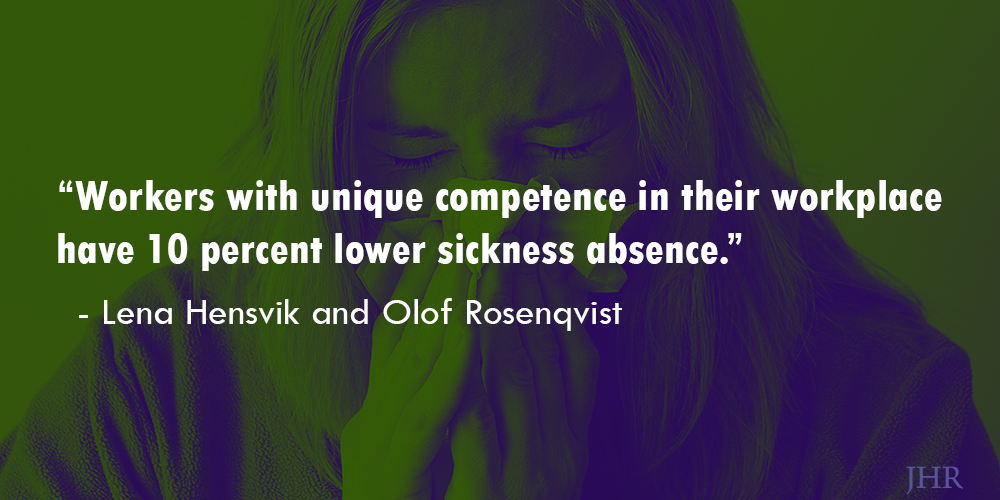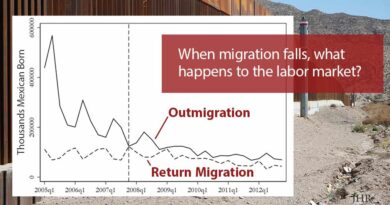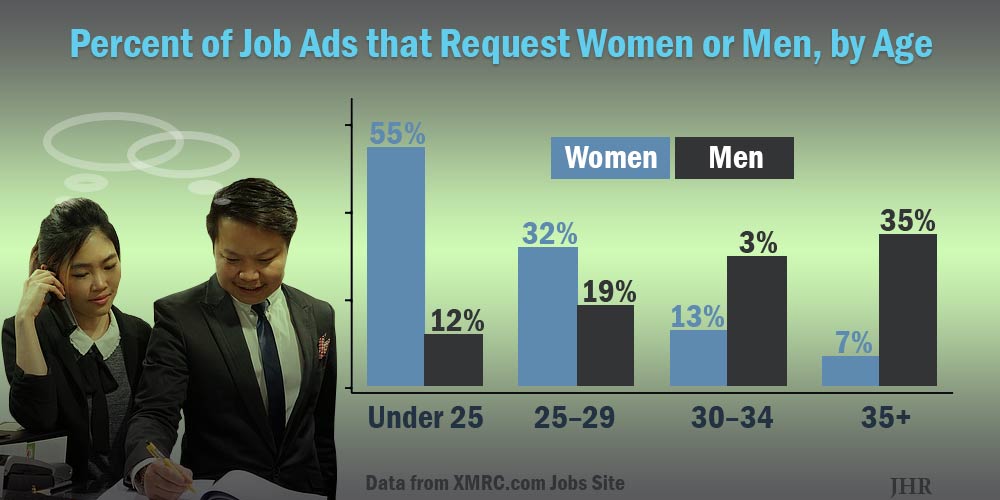Workers with Unique Competence at Their Workplace Say “I’m Taking a Sick Day” Less Often
In many production processes, there is a high degree of complementarity between employees in different jobs—in other words, workers with unique functions are each essential and depend on each other to get the work done. In such cases, work absence can be costly for firms, especially if there are few employees with similar skills who can substitute for the absent worker. In a new study, Lena Hensvik and Olof Rosenqvist (both at Institute for Evaluation of Labour Market and Education Policy, Uppsala, Sweden) explore how employers are addressing this problem.
They found that employers actively—and successfully—try to keep absence lower in jobs with low internal substitutability. The researchers looked at linked employer–employee data for a large representative sample of Swedish private sector firms during 1997–2010. They found a substantial difference in absence rates between more and less substitutable employees within narrowly defined job cells.
Results suggest that jobseekers who have previously shown to have low absence risk are more likely to be hired into positions requiring skills that are rare in the workplace. In addition, sickness absence tends to decrease further for employees who are appointed to a unique position. Together these findings suggest that firms use both selective hiring and internal strategies to overcome problems with sickness absence.
“From the worker’s perspective our results suggest that episodes of sickness absence can have a negative impact on the probability of attaining and keeping unique positions in the future,” says Lena Hensvik.
Read the full study in the Journal of Human Resources: “Keeping the Production Line Running: Internal Substitution and Employee Absence,” by Lena Hensvik and Olof Rosenqvist .
***
Lena Hensvik is an associate professor of economics at the Institute for Evaluation of Labour Market an Education Policy (IFAU) in Uppsala, Sweden. Olof Rosenqvist is a post-doc researcher at the Institute for Evaluation of Labour Market and Education Policy (IFAU) in Uppsala, Sweden.




